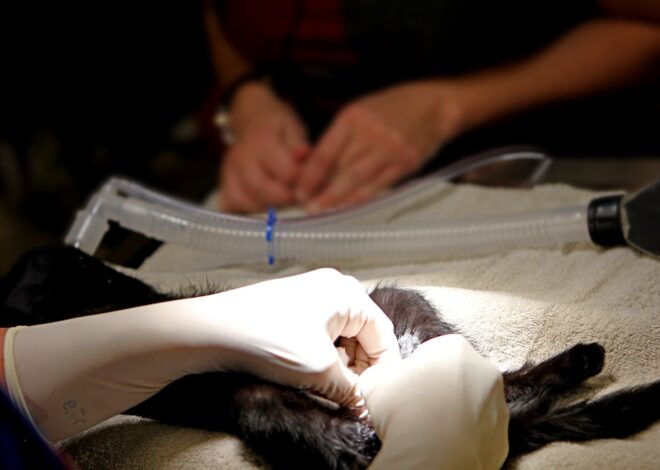
Night Owls at Higher Risk of Developing Diabetes
The phenomenon of being a “night owl” refers to individuals who naturally prefer staying up late and waking up later in the day. This lifestyle choice, often at odds with societal norms that favor early risers, has garnered attention in recent years due to its potential health implications. Among these concerns is the increased risk of developing diabetes, a chronic condition characterized by elevated blood sugar levels.
As research continues to unveil the intricate relationship between sleep patterns and metabolic health, it becomes increasingly clear that night owls may face unique challenges that could predispose them to diabetes. Night owls often find themselves navigating a world designed for early risers, leading to irregular sleep patterns and disrupted circadian rhythms. This misalignment can have profound effects on their overall health, particularly concerning metabolic processes.
The interplay between sleep duration, quality, and timing is critical in maintaining insulin sensitivity and glucose metabolism. As such, understanding the connection between being a night owl and the risk of diabetes is essential for both individuals and healthcare professionals aiming to mitigate this risk.
Key Takeaways
- Night owls have an increased risk of developing diabetes due to their sleep patterns.
- Disrupted circadian rhythms can lead to insulin resistance and higher diabetes risk for night owls.
- Night owls’ lifestyle, including late-night eating and irregular sleep patterns, can contribute to diabetes risk.
- Circadian rhythm disruption can impact insulin sensitivity, leading to a higher risk of diabetes for night owls.
- Strategies such as regular sleep schedules and seeking medical advice can help night owls lower their diabetes risk.
The Link Between Sleep Patterns and Diabetes
Research has established a compelling link between sleep patterns and the risk of developing type 2 diabetes. Sleep deprivation, irregular sleep schedules, and poor sleep quality can all contribute to insulin resistance, a precursor to diabetes. Studies have shown that individuals who consistently get less than seven hours of sleep per night are at a higher risk of developing metabolic disorders.
This is particularly relevant for night owls, who may struggle to achieve adequate rest due to their late-night habits. Moreover, the timing of sleep plays a crucial role in metabolic health. Circadian rhythms, which govern the body’s internal clock, influence various physiological processes, including hormone release and glucose metabolism.
Disruptions to these rhythms, such as those experienced by night owls who stay awake during traditional sleeping hours, can lead to impaired insulin sensitivity. This impairment can result in higher blood sugar levels and an increased likelihood of developing type 2 diabetes over time.
How Night Owls’ Lifestyle Contributes to Diabetes Risk

The lifestyle choices associated with being a night owl can significantly contribute to an elevated risk of diabetes. Many night owls tend to engage in behaviors that are detrimental to their health, such as late-night snacking or consuming high-calorie foods during their active hours. These eating patterns can lead to weight gain and obesity, both of which are well-established risk factors for type 2 diabetes.
Additionally, the tendency to skip breakfast or eat irregularly can further exacerbate metabolic issues. Furthermore, night owls often experience social jetlag, a term that describes the misalignment between an individual’s internal clock and their external environment. This misalignment can lead to chronic fatigue and stress, which are known contributors to insulin resistance.
The cumulative effect of these lifestyle factors creates a perfect storm for metabolic dysfunction, making it imperative for night owls to be aware of their habits and the potential consequences on their health.
The Impact of Circadian Rhythm Disruption on Insulin Sensitivity
| Study Group | Insulin Sensitivity | Findings |
|---|---|---|
| Normal Circadian Rhythm | High | Stable insulin sensitivity levels |
| Circadian Rhythm Disruption | Low | Decreased insulin sensitivity, leading to increased risk of insulin resistance and type 2 diabetes |
Circadian rhythms are integral to regulating various bodily functions, including sleep-wake cycles, hormone secretion, and metabolism. When these rhythms are disrupted, as is often the case for night owls, the body’s ability to process glucose effectively can be compromised. Research indicates that individuals who experience circadian misalignment may exhibit reduced insulin sensitivity, meaning their bodies require more insulin to manage blood sugar levels effectively.
This disruption can lead to a cascade of metabolic issues. For instance, studies have shown that individuals with irregular sleep patterns may experience elevated levels of cortisol, a stress hormone that can further impair insulin action. Additionally, the timing of food intake plays a significant role; consuming meals late at night can lead to poorer glucose tolerance compared to eating during daylight hours.
As a result, night owls may find themselves in a cycle where their lifestyle choices exacerbate their risk of developing diabetes.
Strategies for Night Owls to Lower Their Diabetes Risk
For night owls looking to mitigate their diabetes risk, several strategies can be implemented to promote better health outcomes. One effective approach is establishing a consistent sleep schedule that aligns more closely with natural circadian rhythms. Gradually shifting bedtime earlier can help regulate the internal clock and improve overall sleep quality.
Even small adjustments can make a significant difference in how rested an individual feels and how well their body functions metabolically. In addition to improving sleep hygiene, dietary modifications can also play a crucial role in reducing diabetes risk. Night owls should aim to consume balanced meals throughout the day rather than indulging in late-night snacks high in sugar and unhealthy fats.
Incorporating more whole foods—such as fruits, vegetables, whole grains, and lean proteins—can help stabilize blood sugar levels and promote better insulin sensitivity. Furthermore, engaging in regular physical activity can enhance metabolic health; even moderate exercise has been shown to improve insulin sensitivity and aid in weight management.
The Role of Genetics in Night Owls’ Diabetes Risk

Genetics also plays a significant role in determining an individual’s propensity for being a night owl and their associated diabetes risk. Research has identified specific genetic variants linked to circadian rhythm preferences and sleep patterns. For instance, variations in genes such as PER3 and CRY1 have been associated with delayed sleep phase disorder, which is common among night owls.
These genetic predispositions can influence not only sleep habits but also metabolic processes that affect diabetes risk. Moreover, individuals with a family history of diabetes may be at an even greater risk if they are also night owls. The combination of genetic susceptibility and lifestyle factors can create a heightened vulnerability to developing type 2 diabetes.
Understanding these genetic influences is crucial for healthcare providers when assessing an individual’s risk profile and developing personalized prevention strategies.
The Importance of Seeking Medical Advice for Night Owls
For night owls concerned about their diabetes risk, seeking medical advice is essential for proactive health management. Healthcare professionals can provide valuable insights into individual risk factors and recommend appropriate screening measures for early detection of metabolic issues. Regular check-ups can help monitor blood sugar levels and assess overall metabolic health, allowing for timely interventions if necessary.
Additionally, healthcare providers can offer tailored advice on lifestyle modifications that align with an individual’s unique circumstances as a night owl. This may include referrals to nutritionists or sleep specialists who can provide targeted strategies for improving diet and sleep hygiene. By taking an active role in their health management, night owls can better navigate the challenges posed by their lifestyle while reducing their risk of developing diabetes.
Promoting Healthy Sleep Habits for Diabetes Prevention
Promoting healthy sleep habits is crucial for preventing diabetes among night owls. By understanding the intricate relationship between sleep patterns and metabolic health, individuals can take proactive steps toward mitigating their risk. Establishing consistent sleep schedules, making dietary adjustments, engaging in regular physical activity, and seeking medical advice are all vital components of a comprehensive approach to health management.
As research continues to evolve in this area, it is essential for both individuals and healthcare professionals to remain informed about the implications of being a night owl on overall health. By fostering awareness and encouraging healthy lifestyle choices, it is possible to reduce the prevalence of diabetes among those who naturally gravitate toward late-night activities while promoting better overall well-being.
FAQs
What is the connection between being a night owl and developing diabetes?
Research has shown that individuals who stay up late and have irregular sleep patterns are at a higher risk of developing type 2 diabetes. This is due to disruptions in the body’s internal clock, which can lead to insulin resistance and impaired glucose metabolism.
How does staying up late affect the body’s internal clock?
Staying up late can disrupt the body’s natural circadian rhythm, which regulates various physiological processes, including metabolism and hormone production. This disruption can lead to insulin resistance and an increased risk of developing type 2 diabetes.
What are some other health risks associated with being a night owl?
In addition to an increased risk of developing diabetes, being a night owl has been linked to a higher risk of obesity, cardiovascular disease, and mental health issues. Irregular sleep patterns can also negatively impact overall health and well-being.
Are there any ways to mitigate the health risks associated with being a night owl?
While it may be challenging to completely change one’s natural sleep patterns, individuals can take steps to improve their overall sleep hygiene. This includes maintaining a consistent sleep schedule, creating a relaxing bedtime routine, and minimizing exposure to screens and artificial light before bed. Additionally, seeking professional help for sleep disorders or seeking advice from a healthcare provider can also be beneficial.


